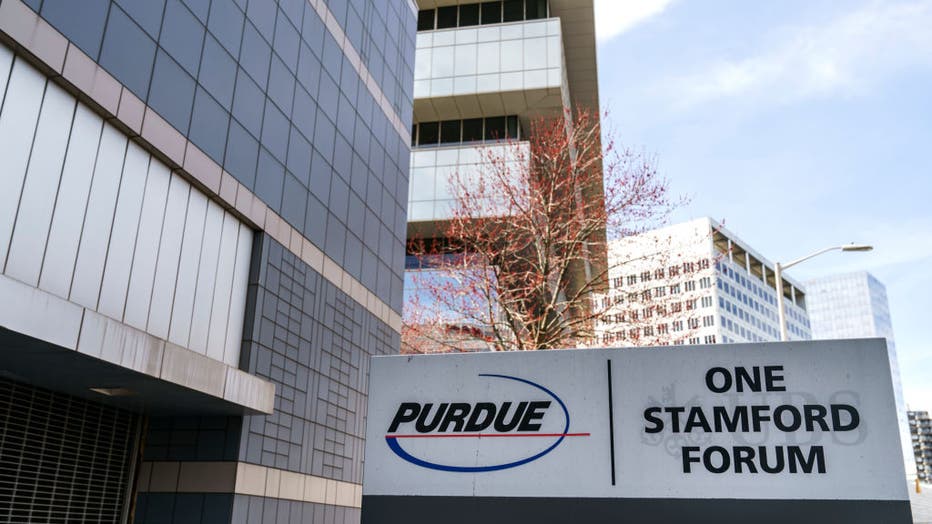States agree to $7.4 billion settlement with Purdue Pharma in opioid case
Fifty-five Attorneys General from across the country said they have agreed to a $7.4 billion settlement with Purdue Pharma and its owners, the Sackler family.
According to Massachusetts Attorney General Andrea Joy Campbell, the Sackler family have agreed to the terms and their roles in worsening the opioid crisis across the country.
What they're saying:
"Under the Sacklers’ ownership, Purdue made and aggressively marketed opioid products for decades, fueling the largest drug crisis in the nation’s history," Campbell said in an online news release.
RELATED: Rick Harrison of 'Pawn Stars' talks about son's overdose death: 'There is nothing worse'
"As Pennsylvania families and communities suffered during an unprecedented addiction crisis, Purdue and the Sacklers reaped the mammoth profits from their products," Attorney General Dave Sunday also said. "This monumental settlement achieves the top priority of getting as much money as quickly as possible to prevention, treatment, and recovery programs across the Commonwealth. My office will continue engagement with municipal leaders to ensure millions of dollars reach every corner of the state."
Purdue Pharma, Sacklers' family role in opioid crisis
The backstory:
The deal, agreed to by Purdue Pharma, the Sackler family members who own the company and lawyers representing state and local governments and thousands of victims of the opioid crisis, replaces a previous settlement deal that was rejected last year by the U.S. Supreme Court.

Purdue Pharma headquarters stands in downtown Stamford, April 2, 2019 in Stamford, Connecticut. (Photo by Drew Angerer/Getty Images)
In the new one, the Sacklers agreed to pay up to $6.5 billion and give up ownership of the company, which would pay nearly $900 million. The maximum contribution from family members is $500 million more than the previous deal.
The new settlement could bring to a close a chapter in a long legal saga over the toll of an opioid crisis that some experts assert began after OxyContin hit the market in 1996. Since then, opioids have been linked to hundreds of thousands of deaths in the U.S. The deadliest stretch has been since 2020, when illicit fentanyl has been found as a factor in more than 70,000 deaths annually.

HHS Sec. RFK Jr. speaks on opioid crisis
U.S. Health and Human Services Secretary Robert F. Kennedy Jr. addressed the opioid crisis Thursday while speaking in Nashville, Tennessee.
Members of the Sackler family have been cast as villains and have seen their name removed from art galleries and universities around the world because of their role in the privately-held company. They’ve continued to deny claims of any wrongdoing.
Purdue sought bankruptcy protection in 2019 as it faced thousands of lawsuits over the opioid crisis. Among the claims are that the company targeted doctors with a message that the addiction risk to the powerful painkillers was low.
Where will the money go?
By the numbers:
Between $800 million and $850 million is also to go to victims of the opioid crisis or their survivors, said Ed Neiger, a lawyer for individual victims; that’s a feature something that most opioid settlements do not include.
According to Reuters, money would go to individuals, state and local governments, and Native American tribes, and the Sacklers would cede control of Purdue.
What's next:
Sunday added that like earlier opioid settlements, the Purdue and Sackler deal will resolve legal claims from state and local governments.
Local governments will be asked to join and vote on the settlement, but that depends on approval from the bankruptcy court.
A hearing on that is coming up soon.
The Source: The information in this story comes from statements by state attorneys general, including Andrea Joy Campbell of Massachusetts and Dave Sunday of Pennsylvania, as well as details from court documents and news releases. The Associated Press contributed to this report. This story was reported from Los Angeles.


